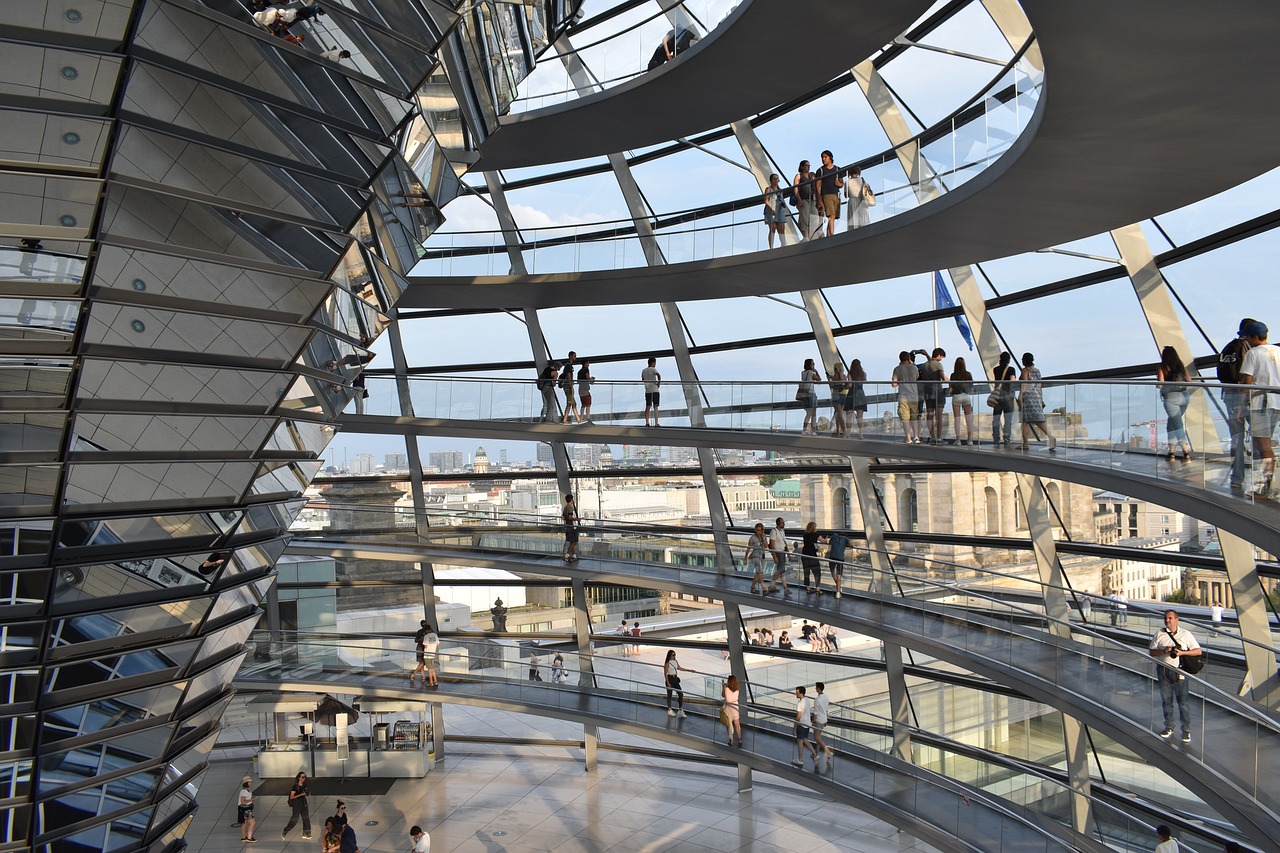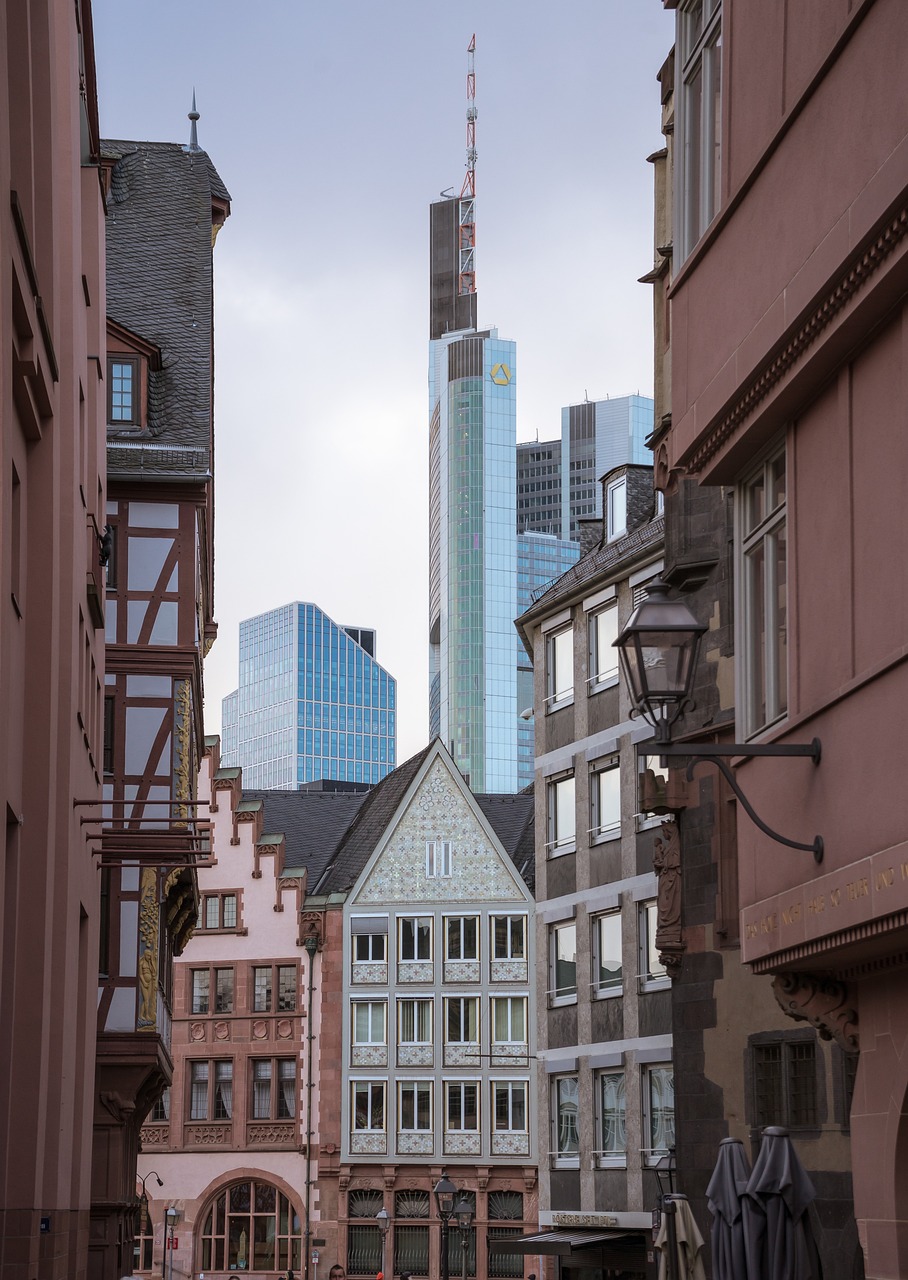Germany Video
Setting Up Shop in Germany: A Digital Nomad’s Workspace Guide
Germany is a vibrant country known for its rich history, stunning landscapes, and thriving economy. It has become a popular destination for digital nomads looking to set up a temporary workspace while exploring all that the country has to offer. In this guide, we will provide detailed information on how to set up shop in Germany as a digital nomad, including the best cities to work in, co-working spaces, accommodation options, internet connectivity, transportation, and more. Whether you’re a freelancer, remote worker, or entrepreneur, this guide will help you navigate the German workspace landscape with ease.
1. Choosing the Right City
Germany offers a wide range of cities that are perfect for digital nomads. Here are some of the top choices:
- Berlin: Known for its vibrant startup scene, Berlin is a hub for creativity and innovation. It offers a diverse range of co-working spaces, cafes, and cultural attractions.
- Munich: With its strong economy and high quality of life, Munich is an ideal city for digital nomads. It has excellent infrastructure, reliable internet connectivity, and a thriving business community.
- Hamburg: As Germany’s second-largest city, Hamburg offers a mix of urban amenities and natural beauty. It has a bustling port, a vibrant arts scene, and a range of co-working spaces.
- Cologne: Located in western Germany, Cologne is known for its stunning cathedral and vibrant carnival celebrations. It also has a growing tech and startup community.
2. Co-Working Spaces
Germany has a wide selection of co-working spaces that cater to the needs of digital nomads. Here are some popular options:
- Factory Berlin: Located in the heart of Berlin, Factory Berlin offers a vibrant community of entrepreneurs, innovators, and creatives. It has a range of amenities, including meeting rooms, event spaces, and a café.
- Impact Hub Munich: Situated in Munich, Impact Hub Munich provides a collaborative workspace for social entrepreneurs and changemakers. It offers regular events, workshops, and networking opportunities.
- Hafven: Based in Hannover, Hafven is a co-working space that focuses on fostering innovation and entrepreneurship. It has a maker space, event area, and a café.
- betahaus Hamburg: Located in Hamburg’s trendy Sternschanze neighborhood, betahaus Hamburg offers a creative atmosphere and a range of amenities, including meeting rooms, a café, and a rooftop terrace.
3. Accommodation Options
When it comes to finding accommodation in Germany, digital nomads have several options:
- Airbnb: Airbnb is a popular choice for short-term rentals in Germany. It offers a range of options, from private rooms to entire apartments, allowing digital nomads to find a comfortable and convenient place to stay.
- Serviced Apartments: Serviced apartments are fully furnished and equipped with amenities such as a kitchen and laundry facilities. They are a great option for digital nomads looking for a home away from home.
- Co-Living Spaces: Co-living spaces are designed for digital nomads and offer a community-oriented living experience. They provide shared living spaces, private rooms, and often include amenities such as co-working areas and social events.
- Hotels: Hotels are another option for digital nomads, especially for those looking for a more luxurious or service-oriented experience. Many hotels in Germany offer business facilities and high-speed internet connectivity.
Germany Image 1:

4. Internet Connectivity
Germany has a well-developed internet infrastructure, making it easy for digital nomads to stay connected. Here are some key points to consider:
- Internet Speed: Germany’s internet speed is generally fast and reliable, especially in major cities. However, speeds may vary in rural areas.
- Mobile Data: Mobile data coverage is extensive in Germany, with several providers offering affordable plans for digital nomads.
- Co-Working Spaces: Most co-working spaces in Germany provide high-speed internet connectivity as part of their amenities.
- Cafes and Restaurants: Many cafes and restaurants in Germany offer free Wi-Fi, making them ideal workspaces for digital nomads.
5. Transportation
Getting around Germany as a digital nomad is convenient and efficient. Here are some transportation options:
- Public Transportation: Germany has an extensive public transportation network, including trains, trams, buses, and subways. The Deutsche Bahn is the national railway company and offers reliable connections between cities.
- Rideshares: Ridesharing services like Uber and Lyft are available in major cities in Germany, providing a convenient and affordable way to get around.
- Bicycles: Germany is known for its bicycle-friendly infrastructure, and many cities have bike-sharing programs, making cycling a popular and eco-friendly mode of transportation.
- Car Rental: Renting a car is an option for digital nomads who want to explore more remote areas of Germany. There are several car rental companies available.
Germany Image 2:

6. Visa Requirements
Depending on your nationality, you may need a visa to work and stay in Germany as a digital nomad. Here are some key points to consider:
- Schengen Visa: Citizens of certain countries can enter Germany and stay for up to 90 days within a 180-day period without a visa. This applies to most European Union countries, as well as several others.
- Long-Term Visa: If you plan to stay in Germany for more than 90 days, you may need to apply for a long-term visa or a residence permit. Requirements and application processes vary depending on your nationality and purpose of stay.
- Freelance Visa: Germany offers a freelance visa for self-employed individuals. To qualify, you need to provide proof of sufficient funds, health insurance, and a viable business plan.
7. Local Culture and Etiquette
Understanding and respecting the local culture and etiquette is important when working and living in Germany. Here are some cultural norms to be aware of:
- Punctuality: Germans value punctuality, so it’s important to arrive on time for meetings and appointments.
- Formality: Germans tend to be formal in business settings, so it’s advisable to address people using their professional titles and last names until invited to use their first names.
- Work-Life Balance: Germans value work-life balance and prioritize leisure time. It’s important to respect boundaries and not expect immediate responses outside of working hours.
- Recycling: Germany has strict recycling regulations, and it’s important to separate waste properly and follow recycling guidelines.
8. Health and Safety
Germany has a high standard of healthcare and is generally a safe country for digital nomads. Here are some key points to keep in mind:
- Health Insurance: It is essential to have health insurance that covers medical expenses in Germany. European Union citizens can use their European Health Insurance Card (EHIC), while non-EU citizens may need to purchase private health insurance.
- Emergency Services: Germany has a well-developed emergency services system, including police, fire, and medical services. The emergency number is 112.
- Safety: Germany is considered a safe country, but it’s always important to take precautions and be aware of your surroundings, especially in crowded tourist areas.
Germany Image 3:

9. Exploring the Country
While working in Germany, take the opportunity to explore the country’s rich history, stunning landscapes, and vibrant cities. Here are some must-visit places:
- Neuschwanstein Castle: Located in Bavaria, Neuschwanstein Castle is a fairytale-like castle that inspired Disney’s Sleeping Beauty Castle.
- The Black Forest: The Black Forest is a beautiful region known for its dense forests, charming villages, and cuckoo clocks.
- The Rhine Valley: The Rhine Valley is famous for its picturesque vineyards, medieval castles, and charming towns.
- The Berlin Wall: Visit the Berlin Wall, a symbol of Germany’s division during the Cold War, and learn about its history at the Berlin Wall Memorial.
10. German Cuisine
Don’t miss the opportunity to indulge in Germany’s delicious cuisine. Here are some iconic dishes to try:
- Bratwurst: A grilled sausage typically served with mustard and sauerkraut.
- Schnitzel: A breaded and fried meat cutlet, usually made from pork or veal.
- Pretzels: Soft, twisted bread snacks often served with mustard.
- Sauerkraut: Fermented cabbage, often served as a side dish.
11. Learning the Language
Learning a few basic German phrases can greatly enhance your experience in Germany. Here are some useful words and phrases:
- Guten Tag: Good day
- Danke: Thank you
- Bitte: Please/You’re welcome
- Entschuldigung: Excuse me
12. Conclusion
Setting up shop in Germany as a digital nomad offers a unique opportunity to work in a dynamic and culturally rich environment. From choosing the right city to finding the perfect co-working space and exploring the country’s attractions, Germany has plenty to offer. By following this guide, you’ll be well-equipped to make the most of your digital nomad experience in Germany.
References
- factoryberlin.com
- impacthub-munich.de
- hafven.de
- betahaus.de
- airbnb.com
- servicedapartments.de
- coliving.com
- deutschebahn.com
- uber.com
- lyft.com


